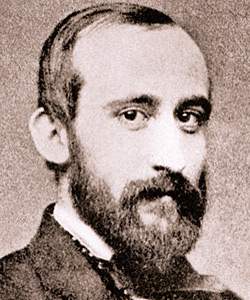Henry Binmore (Washington Post)
DEATH OF HENRY BINMORE.
FORMERLY STEPHEN DOUGLAS’ SECRETARY AND OFFICIAL REPORTER FOR HOUSE.
Chicago, Nov. 5. --- Henry Binmore, shorthand reporter, lawyer, and author, died yesterday at his residence here. He was seventy-four years old. As secretary for Stephen A. Douglas he reported the famous debate with Lincoln in 1858.
In 1860 and 1861 he was official reporter of the national House of Representatives, resigning to accept an appointment as captain on Gen. Prentiss’ staff. At the battle of Shiloh, when Gen. Prentiss was taken prisoner, Capt. Binmore made his escape, saving valuable papers. He was assigned then to Gen. Herbert’s staff as assistant adjutant general.
For the last thirty years he had practiced law and written and compiled various legal works.
Henry Binmore (Sparks, 1908)
HENRY BINMORE
Henry Binmore was born in London, England, September 23, 1833; educated in the schools of England and at Wickhall College, and came to Montreal, Canada, at the age of 16. He at once entered the profession of journalism and invented a system of phonographic reporting peculiar to himself. With it he was able to attain a desirable speed, but could not exchange reading with other systems. He continued at newspaper work in Montreal, New York, and St. Louis for several years, including a term as reporter in the Missouri state senate. In 1858 he was employed on the St. Louis Republican, a Douglas organ, and was sent to Illinois to report the triumphant home-coming of the senator. His reports appearing in the Republican showed such skill in his art that he was employed by the Chicago Times, the official newspaper of Douglas, to report the set debates with Lincoln. He shared this task with James B. Sheridan, a regular phonographic reporter, brought from Philadelphia. At the close of the campaign, Mr. Binmore became a private secretary to Douglas and in 1860 was made reporter in the House of Representatives. From this position he resigned to accept a secretarial appointment on the staff of General Prentiss and later on that of General Hurlbut. At the close of the war, he returned to Chicago, became a law reporter, was admitted to the bar, and died in that city, November 4, 1907. He left an unpublished manuscript on the art and experiences of reportorial writing.



